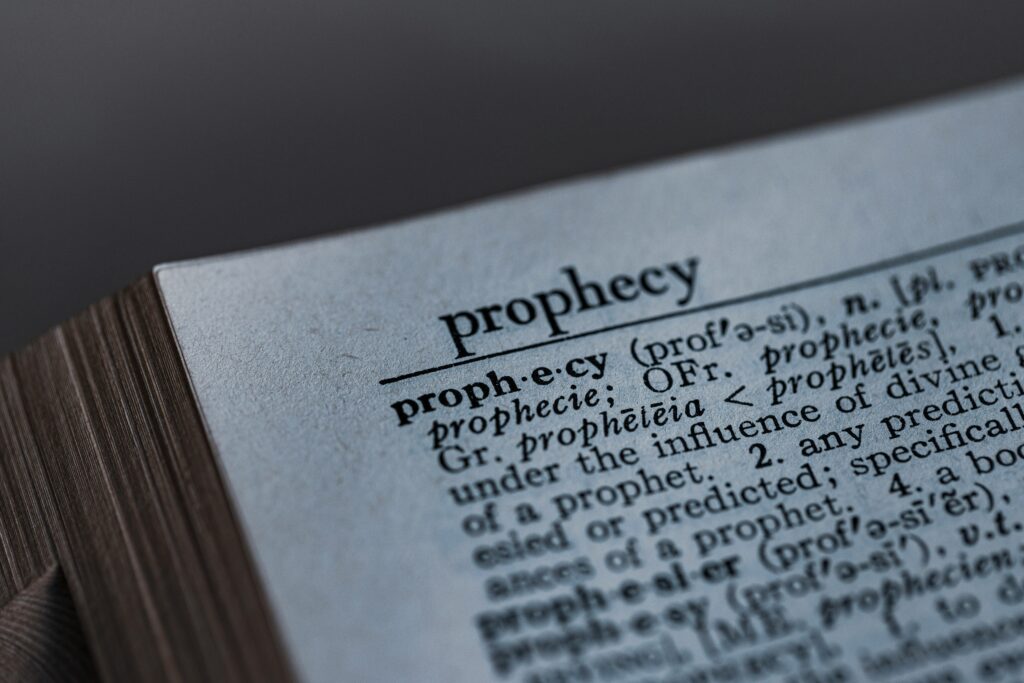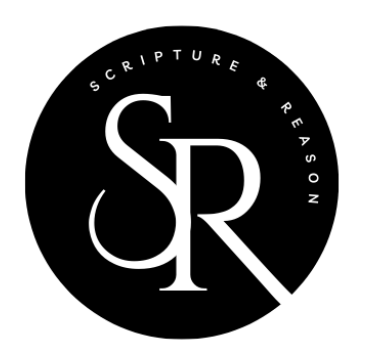
Are there prophets today? This was the question that confronted me while viewing an interaction between a well-known pastor and a self-proclaimed prophetess on social media platforms. The interaction was vehement on both sides, with one party utilizing the scriptures to point out perceived errors. In contrast, the other party resorted to verbal attacks not just on the offending party, but also on others in that person’s circle. So, another day on the Christian social media platforms. (Hehe)
My takeaway from this one was the question stated at the onset. Are there prophets today? To state the question more clearly, is the office of the prophet a part of the normative state of the church? Upon careful reflection on the scriptures, as well as researching the thoughts of biblical scholars on the subject, I can honestly say that I do not believe the prophetic office exists as part of the steady-state church. Prior to tackling the topic, let’s define terms.
I have used two terms synonymously, that being steady-state and normative, to describe the Church. When using these terms, I aim to clarify that we are referring to a church that is post-inscripturation. For millennia, the church has recognized that the period of inscripturation ended with the death of the last apostle. Rarely do I hear anyone, even in circles that affirm the existence of the prophetic office today, claim that scripture is still being inspired. The Church unanimously confirms that the level of God speaking that we have compiled into the sixty-six books was concluded at the end of the first century AD.
What is claimed here is some “lesser” or different type of revelation. These are the words of God, but they are not as authoritative as the biblical witness. Even typing such a statement reveals the inherent flaw in making such a claim. God’s words are less authoritative than God’s words? It doesn’t make sense to me.
In defense of this claim, many turn to Ephesians 4:11-12, a passage often cited as teaching the fivefold ministry.
“And He Himself gave some as apostles, and some as prophets, and some as evangelists, and some as pastors and teachers, for the equipping of the saints for the work of service, to the building up of the body of Christ” LSB.
I have often heard this passage promoted as teaching about the five offices held in the church during its normative state. What is frequently overlooked is the context just stated. This passage is written at a time when the Bible was not yet completed. During the apostolic age, these five offices were in existence.
There are no Apostles today. I have often heard in charismatic circles, people who proclaim themselves apostles, and this is very problematic. Even in that, when they claim apostleship, they don’t mean Apostleship, such as of the original 12, or the original 11, Barnabas, and Paul. If someone were to make this claim today, it would be highly problematic and unbiblical, but that is a topic for another time.
In the same way, the prophet was a temporary office to edify God’s people prior to the completion of His written word. There is no need for the office of the prophet today, because we have His revelation. We hold it in our hands, read it, and hopefully attend a weekly service where a faithful man of God exegetes it for us. The author of “To the Hebrews” makes this point in the opening of his letter when he states
“God, having spoken long ago to the fathers in the prophets in many portions and in many ways, in these last days spoke to us in His Son, whom He appointed heir of all things, through whom also He made the worlds” Hebrews 1:1-2 LSB.
In times past, God spoke through the prophets, but in these last days, the revelation is through Jesus, which leads me to my next point about these so-called prophets. Their message is rarely gospel-centered. Who am I kidding? It’s seldom biblical. With a clear conscience, I have never seen anyone claiming to be a modern-day prophet break out and provide solid exegesis on a substantial portion of scripture.
Their messages usually center around anecdotes on their power or how they are blessed. Also, who doesn’t love the blessing auction that typically takes place after a call for a financial donation? Here is a solid piece of advice. If you hear a sermon and five or so minutes go by without a scripture quotation or a look at the text, get up and walk out.
Here is the main point, and the main reason that this office does not currently exist, and has not for over a thousand years: the scriptures are sufficient. The Bible is the only truly inspired source today that is authoritative for the church.
“All Scripture is God-breathed and profitable for teaching, for reproof, for correction, for training in righteousness, so that the man of God may be equipped, having been thoroughly equipped for every good work.” 2 Timothy 3:16-17 LSB.
The context of these words from the Apostle Paul is direction to Timothy in combating false teachers within the local body. In the same spirit, I commend them to you for the same reason.
What can these so-called prophets reveal to you that the word of God cannot? If you want to be equipped to teach, to live in holiness, to correct error, to live a life pleasing to God, where did the Apostle, under the inspiration of the Holy Spirit, direct you to? Your source for all of the above is the God-breathed scriptures. There is no need to seek out His voice from those who claim to speak on His behalf; you should hear His voice every time you open your Bible.
I want to clarify that I am not a cessationist. I believe in spiritual gifts for today, but I also think they are being abused by many. Both truths can exist simultaneously.
I recognize that these words will be hard to hear for those who enjoy the “ministry” of these “prophets”; for you, I want to posit these questions.
Questions For Reflection
Is the word of the prophet today on the same level as the words of prophets contained in scripture? If not, why not?
Isaiah’s words are recorded, and we recognize them as the word of God. The same goes for Moses and any of the other recorded prophets. What is different about the level of revelation that is coming from the modern-day prophet in contrast to the Old Testament prophet or the writer of New Testament scripture?
How does the church identify false prophets today?
The Lord told us that false prophets will arise. How does one identify a false prophet today if the measure is not the word of God? Rarely do I hear someone who affirms the existence of the prophetic office today speak about identifying false prophets or their existence. What measure is used? I have heard Deuteronomy 18:22 quoted, but I have also heard of folks “missing the prophetic” in an attempt to cover the fact that a false prophecy was given. How many times does it take?
“When a prophet speaks in the name of Yahweh, if the thing does not come about or come true, that is the thing which Yahweh has not spoken. The prophet has spoken it presumptuously; you shall not be afraid of him.” LSB
The other question is, does the false prophet warrant the same penalty today as they did a few verses prior? I say this in jest, but it is a point that needs consideration.
Why is the word of God not enough?
For the majority of the Church’s history, post the apostolic age, there was little to no record of the existence of prophets. The word of God directed the people of God. Why is it not enough for us today? Why have we regressed to seeking signs? That was the rebuke Christ charged at the Jews of His day.
“But He answered and said to them, “An evil and adulterous generation eagerly seeks for a sign; and yet no sign will be given to it but the sign of Jonah the prophet” Matthew 12:39 LSB
Sources
For a more thorough examination of the “five-fold ministry,” please consult the following resources.
Got Questions Ministries. 2002–2013. Got Questions? Bible Questions Answered. Bellingham, WA: Logos Bible Software.
Bannerman, James. 1868. The Church of Christ: A Treatise on the Nature, Powers, Ordinances, Discipline, and Government of the Christian Church. Edinburgh: T&T Clark.

Leave a Reply